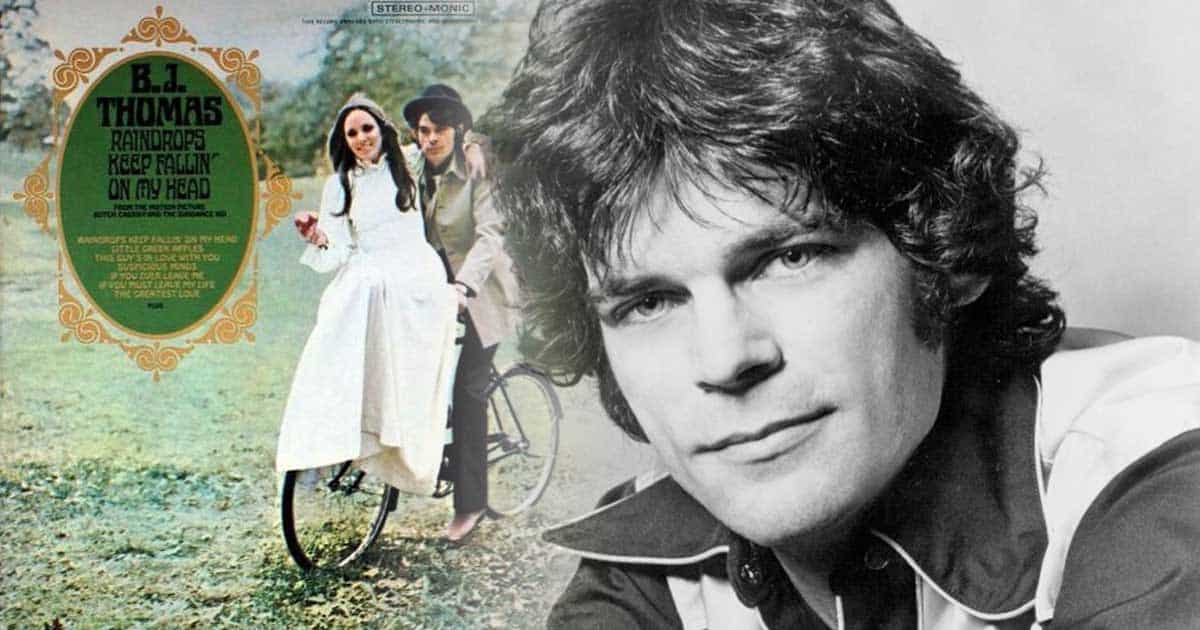



“Raindrops” was the first song the group recorded, for the charity album Help, later that year. The Manic Street Preachers had long used the song in live performances, and turned to it once again when their guitarist Richey Edwards disappeared at the beginning of 1995. The Manic Street Preachers played the song at gigs after guitarist Richey Edwards disappeared © Redferns/Getty Images/Mick HutsonĪnd then, something more profound still: an exhortation to keep going in the face of tragedy. “Raindrops” became an anthem of carefree living in a furiously complicated world.
BJ THOMAS RAINDROPS CODE
The jaunty ukulele strumming of the song’s opening bars became a kind of short code for a feel-good moment: it played in the background when President Richard Nixon gave yet another award to Forrest Gump it resounded more insistently when Spider-Man, in the second of the film’s franchise, abandoned his superhero persona, abdicating responsibility for putting the world to right. Appropriately, “Raindrops” began to make its presence felt once again where it had first appeared, on film. The lack of appreciation did not last long, however. Hard to believe now but for a while Bacharach’s songwriting genius was neglected by a generation that was not used to seeing things sunny-side-up. It zipped its way around Europe: Sacha Distel recorded “Toute La Pluie Tombe Sur Moi” and “Gocce di Pioggia Su Di Me”, to the delight of the Mediterranean’s crooning classes.īut as the decade began to fall apart, “Raindrops” became an anachronism. It appeared that year on albums by Perry Como, Johnny Mathis and Andy Williams. Had the singer accepted, his inevitably ironic rendition would surely have changed the history of cabaret repertoire.Īs it was, the song was a gift for every easy-listening singer on the planet. There was panic in the streets and trepidation in the air yet David’s wholesome lyrics urged us to remain cheerful: “But there’s one thing I know/The blues they send to meet me/Won’t defeat me/It won’t be long till happiness/Comes up to greet me.” Thomas has claimed that the song was originally offered to Bob Dylan. Katharine Ross and Paul Newman in ‘Butch Cassidy and the Sundance Kid’ (1969) © Allstar Among the chart companions of “Raindrops” that week were Led Zeppelin’s “Whole Lotta Love” (not a song about kisses and cuddles) and the Plastic Ono Band’s “Cold Turkey” (nothing to do with Christmas or Thanksgiving). This was the bitter end of the 1960s, and the beginning of a decade many people believed would be bleaker still (they were right). The song stood out, not only for its lovely melody, Bacharach’s trademark octave leaps negotiated with deceptive ease by the singer, but for its absurdly upbeat message. Weeks later, the singer BJ Thomas took “Raindrops” to the Billboard charts, where it became the first number one of the 1970s. The actor’s comedic gifts and the song’s sunny optimism were an irresistible combination. The director played it for laughs, allowing Newman to show off some stunts on a bicycle to the beautiful Katharine Ross. To Hill’s annoyance, the song demanded an interruption in the action. Burt Bacharach had been commissioned to write the score for the movie, and insisted on including a piece he had already named, in his head, “Raindrops Keep Fallin’ On My Head”. With all due respect to the director, he could not fail with his deftly chosen leads, Paul Newman and Robert Redford, whose remarkable good looks and onscreen chemistry seduced us away from any moral qualms over supporting the bad guys.Īs if that weren’t enough, Butch Cassidy also had its killer song. It asked us to believe that criminals were essentially soft-hearted, and their acts of crime amusing aberrations that could be forgiven with the twinkle of a blue eye. George Roy Hill’s charming Western Butch Cassidy and the Sundance Kid, released at the end of 1969, performed a precarious balancing act.


 0 kommentar(er)
0 kommentar(er)
